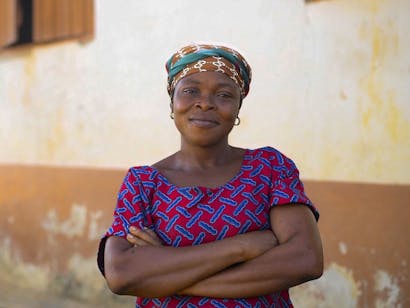Women’s Participation and Savings Groups
Women are often excluded from public decision-making processes, yet their voice and leadership are essential components of gender equality.

Economic empowerment affects participation
A recent study by CARE shows that economic empowerment positively affects women’s meaningful participation in decision-making processes. Having independent income shifts the power dynamics within the household and enhances women’s status in the community, facilitating women’s ability to participate in public spaces.
What did we investigate?
CARE investigated how women’s participation in savings groups influenced their public participation in five countries across Africa and South Asia (Burundi, Mali, Niger, Pakistan, and Sudan). We compared results across three CARE programmes: The Every Voice Counts programme implemented by CARE Nederland, the Recovery Support for Vulnerable Households programme, and the Women on the Move programme.

What did we learn?
Yes, women’s participation in savings groups influences their public participation. Yet, they are not necessarily more influential for women than membership in other community-based organisations. In fact, women are – in most cases – members of both savings groups and other community groups.
Our key findings included:
- Savings groups, more so than other community-based groups, support women to grow their financial resources, which often leads to gaining more influence in their households and raising their status in their community.
- Women that were part of a savings group (as well as other community groups) for at least two years, experienced changes in their personal beliefs about women’s role in decision-making — they shifted their beliefs toward women playing a bigger role and having equality in decision-making with men.
- Membership in a savings group (as well as other community groups) improved women’s confidence, particularly to speak in public, as well as their knowledge and skills on important topics.
- Membership of a savings group (as well as other community groups) provided women with a social network that builds connections into other groups.
- Women who participated in mixed-gender groups were somewhat more likely to believe that women should have a bigger role in public decision-making than women in women-only groups.
- Women who had been involved in CARE Nederland’s EVC programme were more likely to believe that women should play a bigger role in public decision-making processes than the women in the other programmes.
Download and read the study for more details on the findings across the countries and programmes.
Read more:
- Please find the French translation of this case study via this link.
- Case studies from Burundi, Pakistan, and Sudan are also available for download.


